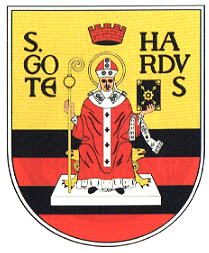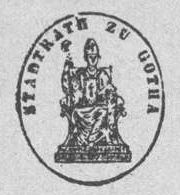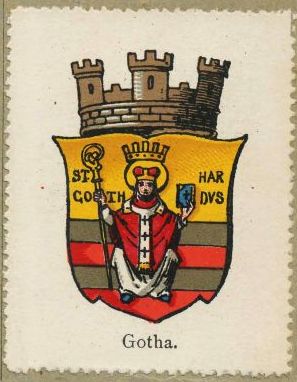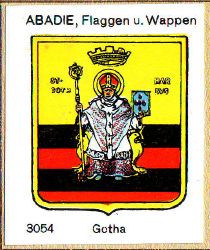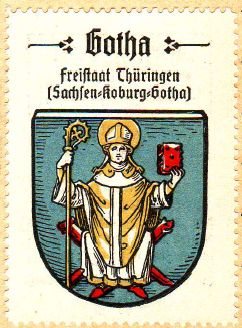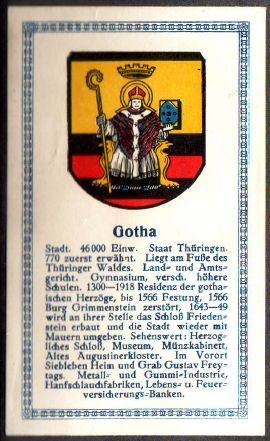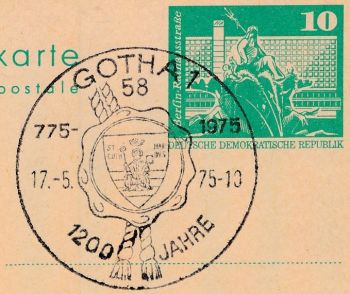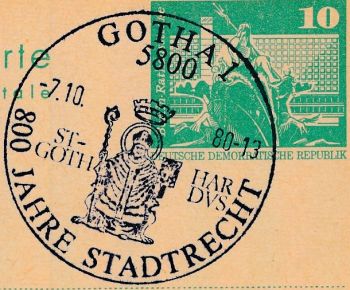Gotha
GOTHA
State : Thüringen
District (Kreis) : Gotha
Additions: 1922 Siebleben; 1974 Sundhausen; 1994 Boilstädt, Uelleben
| German |
Geteilt; das obere Feld in Gold, das untere dreimal geteilt von Schwarz und Rot; in Schildmitte ein nimbierter Bischof auf einem mit Greifenköpfen verzierten goldenen Sessel sitzend, in der Rechten den Krumm stab, in der Linken ein Buch haltend; über ihm schwebend eine fünftürmige rote Mauerkrone; auf der linken Seite die Buchstaben S. Goth, rechts HAR DVS (St. Gothardus). |
| English | blazon wanted |
Origin/meaning
The arms show St. Gothardus (961-1038), Bishop of Hildesheim. He already appears in the oldest known seal of the city, dating from 1250. Why the bishop is chosen is not clear, it may be as a canting symbol. There is no historical relation between the city and the bishop.
The basic composition has not changed since, but the shape of the saint and the other attributes has changed considerably during the centuries.
Hupp showed in the 1920s the arms in a more simplified version:
| The municipal stamp shown in 1892 |
The arms in the Wappen-Sammlung (1900) |
| The arms in the Abadie albums |
The arms by Hupp in the Kaffee Hag albums +/- 1925 |
| The arms in a 1930s album | |
| Postal cancellation 1975 |
Postal cancellation 1980 |
This page is part of the German heraldry portal Deutsche Wappensammlung |
Heraldry of the World |
|
German heraldry:
|
Selected collector's items from Germany:
|
Contact and Support
Partners:
Your logo here ?
Contact us
© 1995-2025, Heraldry of the World, Ralf Hartemink 
Index of the site
Literature: Hupp, O: Kaffee Hag albums, 1920s; Benzing et al, 1984; Ulle, 1997
